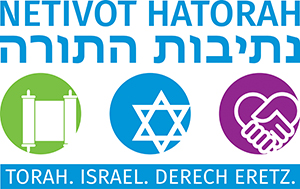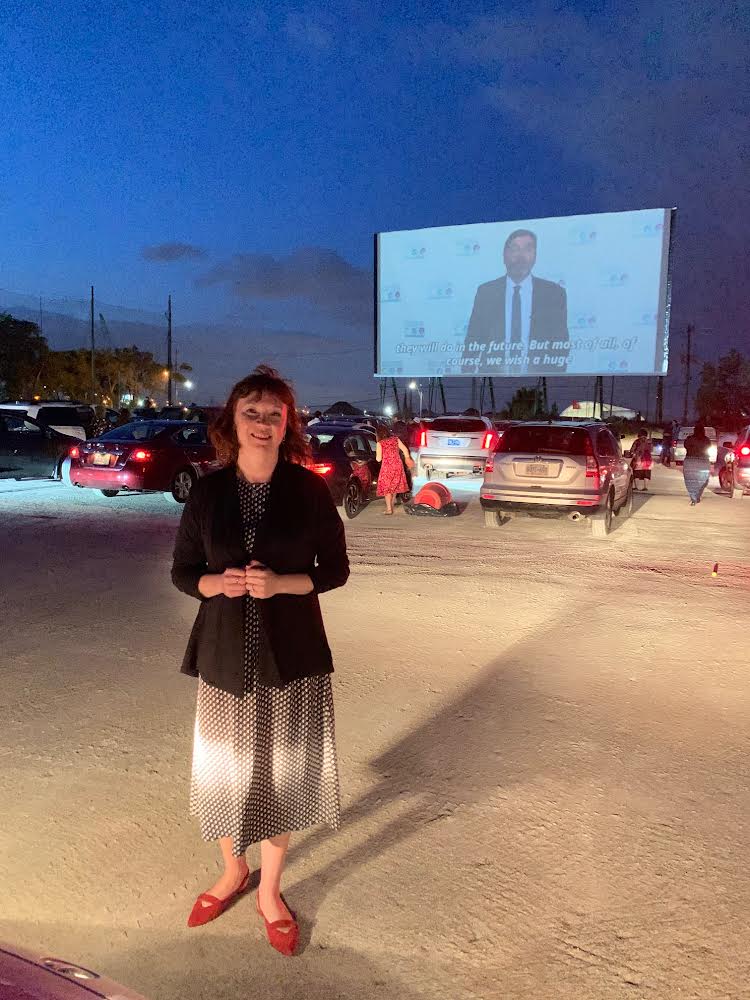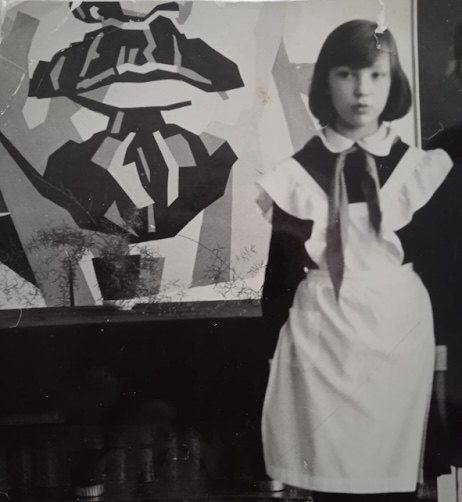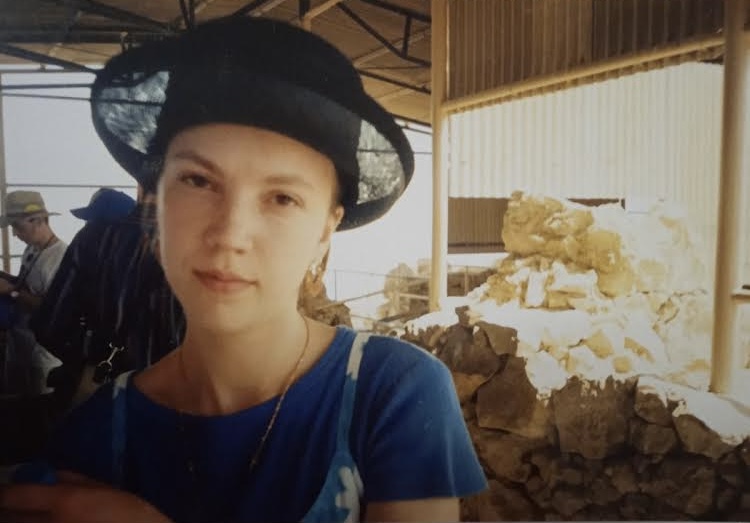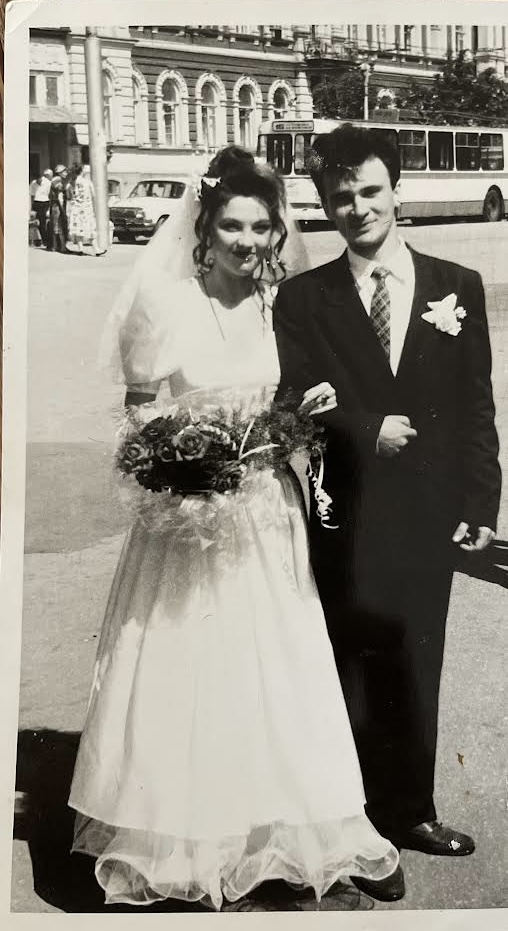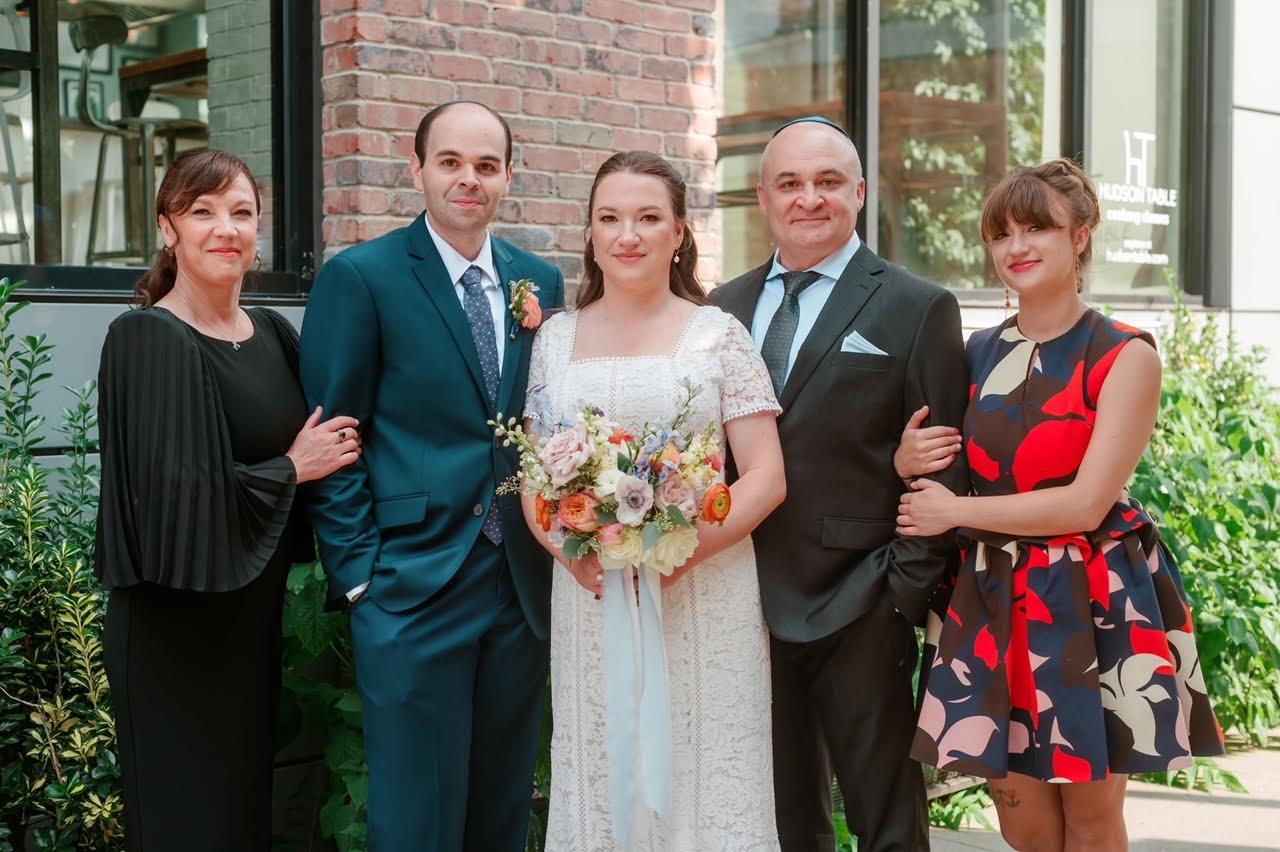Tanya Michailovich
“When I look at the Russian communism now, I reflect, but back then, it was just normal life. We were required to attend certain communist meetings. I think the discipline that I got, specifically working discipline, I got back from Russia. You had to manage many, many things, and you were independent from the age of 5. I was walking home from my childcare with a key on a chain. We worked hard; we didn’t have a day off. I did the shopping, cooking (I cooked dinner for my parents from when I was 6 years old) , washing, and ironing. I also attended 2 schools starting in Grade 1: a public school until 2 pm and then a music school in the afternoon until 8 pm. Between extra math, physics, chess and my chores, there was very little time for regular childhood play!’” As Tanya Michailovich shares details of her ‘brief’ childhood, she also recalls her first experience with the English language: listening to a cassette of music that she got on the black market.
Tanya knew she was Jewish but it was never spoken about with her parents. She holds cherished memories of hiding behind a chimney with her Safta who would teach her Tefilot and Ivrit from a siddur and would tell her, “Tanya, Yom Echad B’Yerushalayim.” At 16 she met a group of Jewish teenagers and together they talked about wanting to move to Israel. Tanya couldn’t freely leave; she needed written permission from both her parents, but they wouldn’t grant it. She went on to meet her boyfriend Oleg and after 2 months they decided to marry and escape to Israel together. They thought that as a married couple they wouldn’t need approval from their parents, but they were wrong. They entered and won a contest run by an Israeli kibbutz that was holding interviews in Russia. A month before their planned Aliyah, Tanya’s husband was diagnosed with cancer and was told he had 1 year to live. Tanya pleaded to her parents, “It is his dream to die in Israel, let me go with him and then I will come back.” They signed the papers, and Oleg’s parents decided to make Aliyah with them to be with their son.
“I experienced my first miracle when we got to Israel.” After a round of chemo in Russia, the Israeli doctors tested Oleg and he was cleared. “We settled into Israel with our daughter and I got accepted into the University of Haifa for a PHD. But then, my husband got sick again, so I needed to work. I worked during the day cleaning a school, and then I did a masters program at night. The lectures were in Hebrew so I did not have a choice but to become fluent.”
After finishing her degree, she started her practicum, teaching students with autism. Oleg’s post-doc took them to America, where Tanya continued teaching Ivrit special ed, followed by regular classes and then she helped write the school’s curriculum. After moving to Toronto with their 2 daughters, Tanya worked at Associated for many years, and she is currently Netivot’s beloved Ivrit teacher and coordinator. She is rewriting Netivot’s Ivrit curriculum, coaching the Ivrit teachers, and working in the NESS department. Tanya recently finished a masters degree at Middlebury, the premier language college in the US.
“I’ve lived and taught in 4 different countries. I think Netivot is a special place. I come to work with a smile on my face. I know there is something for me to do, I feel a lot of love from the students and staff and I feel like I am positively contributing. I have professional satisfaction here, I come to school and I don’t look at the clock.”
Tanya and Oleg’s dream to live in Israel is still very strong and they plan to return after they retire.
